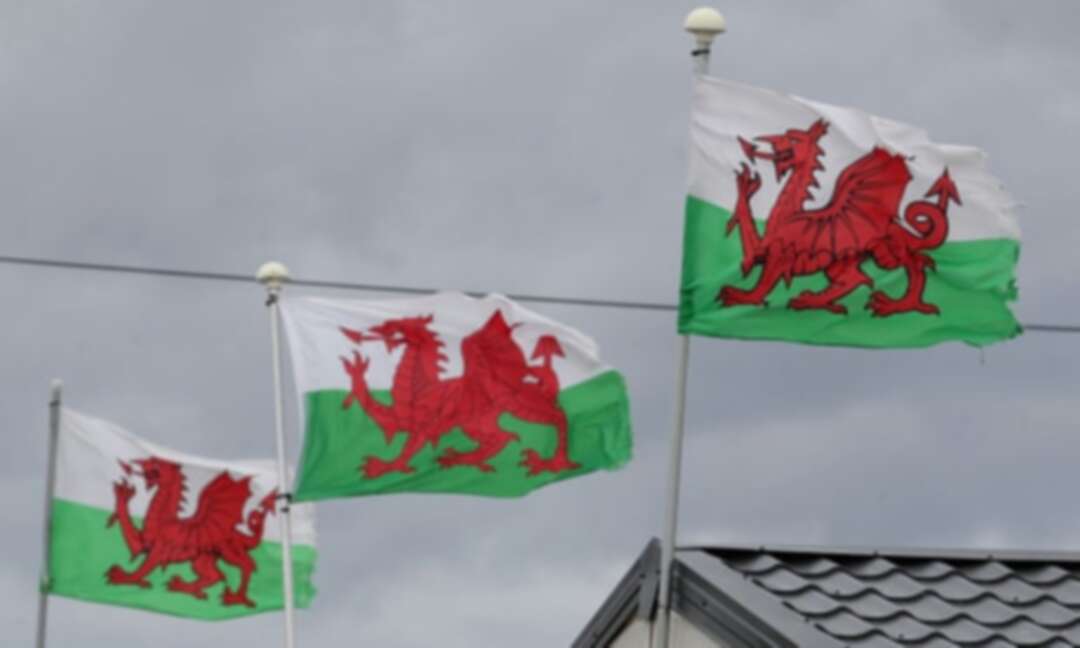-
Westminster warned as poll shows record backing for Welsh independence

Survey for ITV News Tonight reported ‘dramatic uplift’ with 40% backing independence and most support amongst young people
A poll suggesting that backing for independence among Welsh citizens is at a record high should serve as a warning for the UK government and prompt it to work harder at its relationship with the devolved nations, supporters of the union have said.
Just under 40% of Welsh people polled who expressed an opinion said they would vote for independence, citing feelings that their country has different social attitudes to the UK as a whole and unhappiness at Westminster’s response to the Covid pandemic.
Peter Hain, the former Labour secretary of state for Wales and Neath MP, said: “This is a grim warning to Boris Johnson that his cavalier hostility to Wales’ democratic rights and parliament risks tearing the UK apart. He has single-handedly transformed derisory levels of independence support into a threatening one.”
Mick Antoniw, a Labour member of the Welsh parliament, who is a leading proponent of a new “radical federalism” for the UK, said: “There is no doubt that more and more people in Wales want change in our relationship with Westminster. This has mainly been fuelled by a UK Tory government intent on centralising power in Downing Street and its failure to engage with the Welsh government on key policies and reforms.
For some, this takes the form of calls for independence and others, a radical federalism. The current relationship between the UK and Welsh governments is increasingly fractious and disconnected.
“I believe that now is the time for a Welsh “People’s Convention” to engage the people of Wales in deciding what the future governance of Wales should be and our relationship with the rest of the UK. Failure to embrace real change will lead to the break up of the UK.”
Nia Griffith MP, Labour’s shadow secretary of state, said an independence referendum in Wales would be “divisive and unnecessary” and lead to “chaos”.
The poll, for the ITV News Tonight programme and carried out with research company Savanta ComRes, suggests that, excluding “don’t know” answers, 39% of Welsh people would vote ‘Yes’ if a referendum was held immediately. The most frequently cited reservations were concerns about the economic impact and freedom to travel and work in other UK nations.
For many years the number in favour of independence for Wales remained static on roughly 10% but it has climbed in recent years and there have been polls putting support at about a third.
Laura McAllister, professor of public policy and the governance of Wales at Cardiff University, said the new poll seemed to show a “dramatic uplift” in support for independence.
She said: “We know that there’s been a growth in those calling themselves ‘indy curious’ and, given polls have shown consistently that greatest levels of support for independence lie with the youngest age groups, all this suggests that independence will be a live issue in these Senedd elections and beyond.”
Plaid Cymru leader Adam Price argued the poll confirmed a “growing view” that the union was failing all parts of the UK “beyond the Westminster bubble.”
A spokesperson for the UK government said: “The United Kingdom is the most successful political and economic union the world has ever seen, and this pandemic and our collective response, from the furlough scheme to vaccine procurement and the backing of our military personnel, has shown that we are at our strongest when we work together towards a common goal.”
source: Steven Morris
Levant
You May Also Like
Popular Posts
Caricature
BENEFIT Sponsors BuildHer...
- April 23, 2025
BENEFIT, the Kingdom’s innovator and leading company in Fintech and electronic financial transactions service, has sponsored the BuildHer CityHack 2025 Hackathon, a two-day event spearheaded by the College of Engineering and Technology at the Royal University for Women (RUW).
Aimed at secondary school students, the event brought together a distinguished group of academic professionals and technology experts to mentor and inspire young participants.
More than 100 high school students from across the Kingdom of Bahrain took part in the hackathon, which featured an intensive programme of training workshops and hands-on sessions. These activities were tailored to enhance participants’ critical thinking, collaborative problem-solving, and team-building capabilities, while also encouraging the development of practical and sustainable solutions to contemporary challenges using modern technological tools.
BENEFIT’s Chief Executive Mr. Abdulwahed AlJanahi, commented: “Our support for this educational hackathon reflects our long-term strategic vision to nurture the talents of emerging national youth and empower the next generation of accomplished female leaders in technology. By fostering creativity and innovation, we aim to contribute meaningfully to Bahrain’s comprehensive development goals and align with the aspirations outlined in the Kingdom’s Vision 2030—an ambition in which BENEFIT plays a central role.”
Professor Riyadh Yousif Hamzah, President of the Royal University for Women, commented: “This initiative reflects our commitment to advancing women in STEM fields. We're cultivating a generation of creative, solution-driven female leaders who will drive national development. Our partnership with BENEFIT exemplifies the powerful synergy between academia and private sector in supporting educational innovation.”
Hanan Abdulla Hasan, Senior Manager, PR & Communication at BENEFIT, said: “We are honoured to collaborate with RUW in supporting this remarkable technology-focused event. It highlights our commitment to social responsibility, and our ongoing efforts to enhance the digital and innovation capabilities of young Bahraini women and foster their ability to harness technological tools in the service of a smarter, more sustainable future.”
For his part, Dr. Humam ElAgha, Acting Dean of the College of Engineering and Technology at the University, said: “BuildHer CityHack 2025 embodies our hands-on approach to education. By tackling real-world problems through creative thinking and sustainable solutions, we're preparing women to thrive in the knowledge economy – a cornerstone of the University's vision.”
opinion
Report
ads
Newsletter
Subscribe to our mailing list to get the new updates!






















